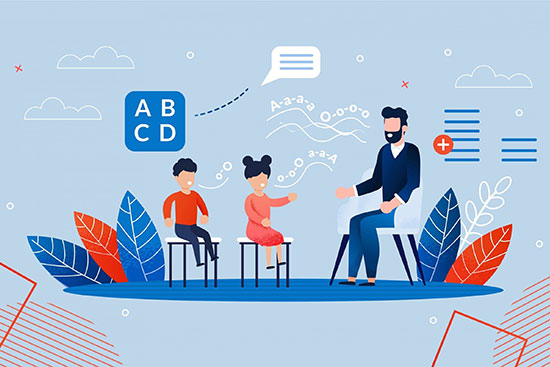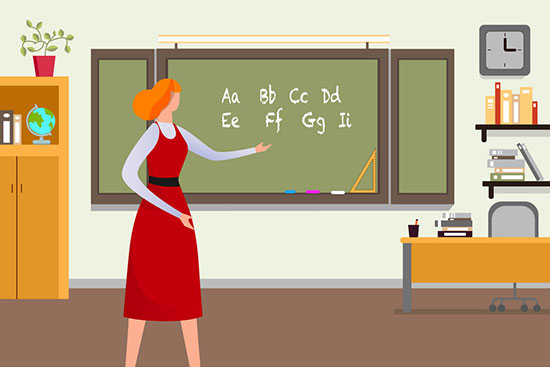What Is Pedagogy? Importance of Pedagogy in Teaching and Learning Process
Get Your Free Trial Now!
What is Pedagogy?
The word 'paedagogy' is gotten from the two Greek words 'paid and 'agogos,' signifying 'youngster' and 'pioneer,' individually. Under this wide term, 'paedagogy' has been utilized to mean the hypothesis and practice of schooling.
All in all, Pedagogy is the most common way of educating and realizing, which includes the framework and strategies utilized by educators to get effective picking up going for understudies. We are going to explore the query What Is Pedagogy? Connections of pedagogy in both teaching and learning, thus trying to clarify its multidimensional influence.

Defining Pedagogy

Education, in essence, is a pedagogy that includes its approaches, processes, and theories. It is what educators use to show their students and to give them information, abilities, and mentalities.
It isn't restricted to only summing up, as it is exceptionally adjustable, and rather, it takes care of the differing needs of understudies such that each understudy's learning style and speed are considered.
The Importance of Teaching Philosophy in Content Development
In curriculum development, one of the most essential phases is pedagogy, which determines the condition of education. What is the role of pedagogy in curriculum formation? It combines the use of pedagogy with the targeted curriculum outcomes, so students will have a cohesive and effective educational experience.
The instruction is purposefully shaped to demonstrate the educator's knowledge of pedagogy concepts such as gap analysis, experiential learning, collaborative activities, and assessments that capture student knowledge.

Importance of Pedagogy in learning
Education practitioners employ a myriad of pedagogies in order to meet their learners' different requirements. Abundant with traditional lectures and lessons, direct instruction, project-based learning, and inquiry-based teaching, the arsenal of pedagogical tools puts educators in a position to adapt their practices to different learning goals and student backgrounds.
Understanding the individual strengths and weaknesses of all pedagogical approaches will give teachers the means to create stimulating and absorbing learning activities. The pedagogic flexibility allows teachers to inspire an intellectual curiosity in their students, which makes for an educational environment that is vibrant and encourages lifelong learning. Pedagogy can be highly important for learning.
Who plays the role of a teacher in teaching and learning? Pedagogy is the main engine that precedes information transformation into knowledge, leading students to fulfill their inherent intellectual potential. Besides the classroom, pedagogy's influence reaches wider areas of learning, such as internet platforms, simulative, and non-formal educational environments.
Don’t Miss Out : What is Edubull School ERP Software?
Active Learning: Part of the Pedagogy Column
Most critical in pedagogy is active learning at heart. Active learning differs from passive learning, which is a theory where students simply absorb information without actively engaging. Active learning requires participation, collaboration, and critical thinking. Pedagogy functions as an active learning methodology through adaptive processes like interactive activities, discussions, and hands-on experiences.
Active learning enables the students to be the real participants in their education, and as a result, the students develop a deeper sense of understanding of the subject matter and acquire appropriate skills. An approach to teaching known as pedagogy involves the creation of lessons that promote curiosity, creativity, or independent thinking. The approach adopted is therefore holistic to the learning of concepts.
Individualized Instruction: Catering to Different Learning Preferences
Providing appropriate education for each learner is the core principle of pedagogy, which pays attention to a wide range of requirements. The humanization of the student as the core of education is evidenced by their different abilities, weaknesses, and learning styles. Pedagogies that consider different students’ strengths will enable every student to develop. From changing existing instructional methods to producing customized learning schedules or adopting varied assessment procedures to producing a diverse and supportive learning platform, pedagogy is a tool that offers educators the opportunity to suit every learner.
Assessment and Feedback: Accompanying the Learning Road
One of the features of user-centered teaching is the understanding of the possibility of constructive feedback and the algorithm of guidance for students on their educational path. The whole feedback mechanism identifies not only the weak but also the strong sides in the development of a person's mindset of continuous pursuit of knowledge and growth.
Conclusions about what is pedagogy?
It is the pillar on which the entire education is built and the directing instrument that structures teaching and learning activities. From classrooms to different learning environments, teaching evolves and stays relevant in order to be dynamic and a change agent.
The greatest feature of pedagogy is the way it ignites and sustains students' interest in the learning process, stimulating their minds to link classroom learning with real life. Pedagogy functions as the linchpin that connects the information to the knowledge, which in turn helps in creating situations where individual students are enabled to actively engage in learning, get instruction tuned to their individual needs, and are assessed properly.
Read Also : New Education Policy 2020(NEP 2020): Everything you Need to Know

FAQs About What is Pedagogy?
What is pedagogy?
Pedagogy is the support of educational practices, which include both the hypothesis and the utilization of strategies, instruments, and standards to improve understudies learning.
What is the contrast among Pedagogy and andragogy?
Pedagogy is frequently connected with the education of youngsters, and for adults, pedagogy addresses the strategies and standards of instructing. Andragogy places the students in the driving seat, and it takes care of the requirements of grown-up students.
What is pedagogy's significance as a teaching approach?
Pedagogy is of crucial importance in teaching because it instructs and facilitates educators in designing interactive and inclusive learning environments. It aids in tailor-made learning methods based on the accommodation of different learning styles, creating the right learning atmosphere for students’ achievement.